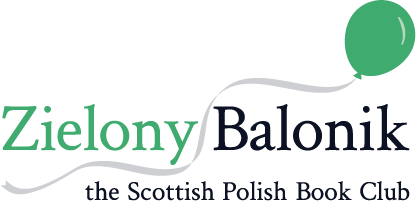Jenny Robertson writes:
“My first inkling of Poland came in a Glasgow classroom when we were shown on an old reel to reel projector a broken film, barely visible made by Film Polski. Only years later did I realise it was about the restoration and return of the Wit Stworz altar to the Mariacki church in Kraków. It thrilled me with a sense of survival and of valuing something precious: Polska.”
The two poems below draw on her memory of that film, and her first visit to the city itself.
Kraków in sepia: two snapshots from a Scottish album
1958, Chored maisterstick
Lang syne in ane Glescae schule –
chalk stour, reek o damp claes an sweat,
we’re shawn a fillum “tae dae wi art”. Sklintering bits
o celluloid, gaistly shapes atweesh gliff blitz
o licht, a wee bit ferlie, syne a name,
film polski, and a thocht: reclaim.
We hae seen yon chored maisterstick braucht hame
tae Kraków – nae saining i the Kirk fae it,
no yet; but a-unkenning I was gien a wee sma keek
– blawn haar in hairst –
intae airts weel hoddit, a hale mind-set
“dunted, but no daunted yet”
that pu’d me thence, like metal skelfs tae strang magnet.
Long ago, in a Glasgow school, chalk dust, smell of damp clothes and sweat, we are shown a film “to do with art”. Broken bits of celluloid, ghostly shapes between momentary blitz of light, a little wonder, then a name, film polski, and a thought: reclaim. We saw that stolen masterpiece brought home to Kraków – no consecration in Church for it, not yet; but all unawares I was given a very small glimpse, like blown sea mist in autumn, into places well concealed, a whole mind-set: “struck down but not defeated yet”, that pulled me thence, like pieces of metal to a strong magnet.
1962, Student tour
Four years later – careless twenty – I am here
in soaring summer heat,
hear hejnal sound across the Market Square:
basements, dim-lit, thrum with illicit beat.
We Scottish girls discard our bras.
“Just like the Polish girls,” we whisper, unaware
our Playtex frillies are undreamt of where
girls use no make-up, wear long, braided hair,
or, city-slick, her nylons, 15 denier, sheer
cost an hour of sex per desired pair.
Oświęcim? Not on our student tour
of cities bright with socialist hope,
but in a cellar where she works with hard-to-lather soap,
a woman slumps on backless chair; hands puffy, damp.
Rolled sleeves expose a number stamped
on her swollen wrist,
– silent witness and unspoken text.
A lifetime later I still see her deformed hand;
in mind and memory bear that violent brand.
*
Inny świat?
(A different world?)
Jenny Robertson, December 2023







